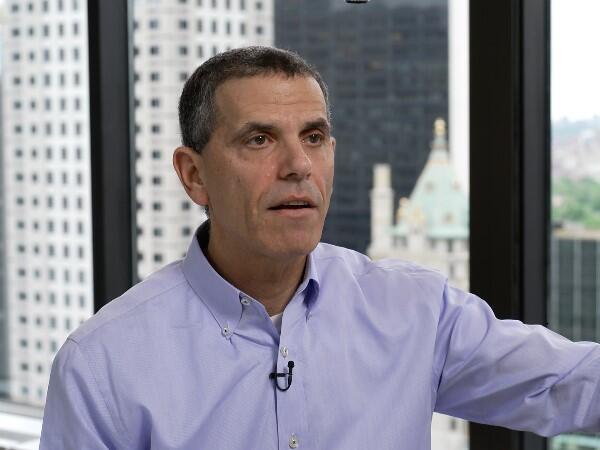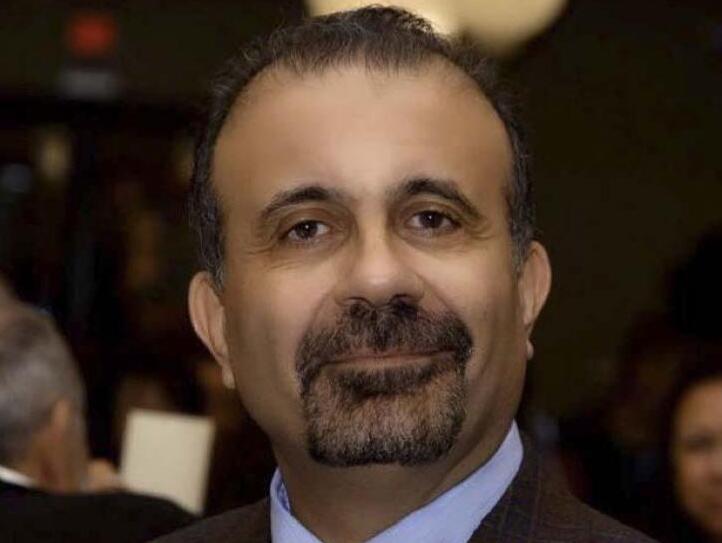Getting your Trinity Audio player ready...
Shortly before former President Donald Trump revoked $400 million in federal grants to Columbia University, Israeli-American professor Avi Friedman had already made his decision to leave.
His departure, however, was not due to the pro-Palestinian protests that have engulfed the campus since the October 7 Hamas attack on Israel, nor was it a response to student-led building takeovers or even the removal of Israeli professor Shai Davidai from campus.
For Friedman, a professor of financial economics at Columbia Business School, the breaking point came when the university appointed Professor Joseph Massad—who has described Zionism as a "colonialist movement" and Israel as an "apartheid state"—to teach a new course on Zionism.
'A lost generation' on campus
Friedman, 61, did not shy away from engaging with student demonstrators. He recalled visiting their encampment on campus last April—an early catalyst for the wave of anti-Israel protests that has since spread to universities across the United States.
"I saw a group of lost kids," he said. Hoping to better understand their perspective, Friedman removed his kippah and approached them. "I asked one of them why she was there, and she told me something I’ll never forget: ‘We are holding space for Gaza.’ What does that even mean? You're not a physics student—what does ‘holding space’ mean?"
Pro-Palestinian students protesting at Columbia
(Eliana Goldin)
While Friedman described the student protests as "orderly and peaceful," he noted that the real hostility came from outside agitators. "On Broadway, it was a different story. That was a real protest—aggressive, militant. That’s where you heard ‘From the river to the sea’ and ‘Global Intifada.’"
Despite the rising tensions, Friedman said he believed in upholding free speech. "This is America. I hate what they’re saying, but they have the right to say it—as long as it doesn’t turn into violence."
Get the Ynetnews app on your smartphone: Google Play: https://bit.ly/4eJ37pE | Apple App Store: https://bit.ly/3ZL7iNv
However, he was critical of Columbia’s administration for what he viewed as weak leadership. "They set deadlines for clearing the encampments and then did nothing when those deadlines passed. That sent a clear message that there are no consequences for anything," he said.
Hamas and Zionism
The final straw for Friedman came in December, when the university announced Massad’s new course on Zionism. Massad, a Palestinian-born professor of Middle Eastern studies at Columbia since the 1990s, has long been a vocal critic of Israel. His articles and speeches have sparked backlash from Jewish organizations, members of Congress, and fellow academics—especially after he praised Hamas' October 7 attack as "remarkable" and "a stunning victory over Zionism."
Despite public outcry, Columbia defended the decision to offer the course, citing academic freedom. "His class is limited to 60 students and is not a required course," the university stated in December, acknowledging that Massad’s remarks had "caused pain" but reaffirming its commitment to free expression.
Friedman was unconvinced. "This wasn’t just Columbia reacting to events; this was an active decision to promote an anti-Zionist narrative," he said. "If a professor said the U.S. shouldn’t exist, would you let them teach American history? Would you let Meir Kahane teach a course on Palestinian self-determination?"
He dismissed the university’s response as "nonsense." "They kept telling me, ‘We are committed to academic freedom.’ But if Massad had made these comments about any other minority group, he’d have been fired in a minute. No question."
A wider battle over campus antisemitism
Friedman’s resignation comes amid a broader reckoning over antisemitism on U.S. college campuses. Columbia has been at the center of this debate, with lawsuits, congressional scrutiny, and donor backlash intensifying in recent months.
While Friedman is skeptical that his resignation will bring significant change, he sees growing pressure on universities to address antisemitism. "Trump promised action, and I’m actually surprised he’s following through," he said, referring to federal funding cuts and legal measures being pursued against universities accused of tolerating antisemitism.
"Right now, I’m cautiously optimistic," he added. "There’s movement—donors are pulling out, applications are declining, and it’s becoming harder for Columbia to recruit top talent. But this is a historic institution that has weathered worse. Will it change? How long will it take? Who knows. But at least there’s finally some pushback."







